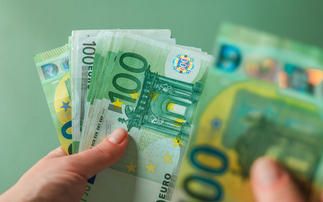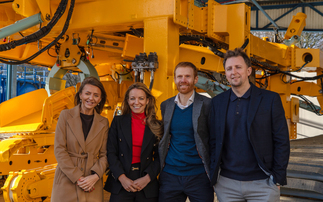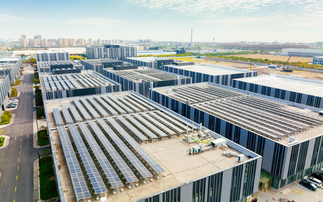Karin Burns calls on more companies to embrace REDD+ to increase the economic value of forests
Trees can help save us. The question is whether we have the wit to save them.
Trees are our greatest ally in fighting climate change. They store carbon and turn atmospheric CO2, water and sunlight into wood, and produce the oxygen we breathe.
Instead of returning the favour, we cut them down. An area the size of New York City is lost every day to deforestation and forest degradation. Every year we lose a forest the size of England. Emissions from tropical deforestation and forest degradation are comparable to the total annual CO2 emissions of China.
But the tide may finally be turning. Last month, dozens of governments, more than 50 indigenous groups and non-governmental organizations (including Code REDD) and some of the world's largest corporations endorsed the New York Declaration. The declaration aims to halve forest loss by 2020 and end it by 2030. That would be like eliminating the entire carbon footprint of the US Just by being good to trees.
It was against this backdrop that there was a renewed sense of hope at last week's REDD+ Talks: London, a gathering of many of the core advocates of preventing deforestation and forest degradation. Sure, there was the usual grumbling that we're not moving fast enough (we're not). And there were the usual unsettling data that show how rapidly we are racing toward peril (we are).
Mark Campanale of Carbon Tracker noted that only 20 per cent of the known fossil fuel reserves can be burned if we are to keep the global mean temperature increase to two degrees Celsius. Like blindfolded accountants with broken abacuses, major stock exchanges around the world continue to put a value on the entire lot - oblivious to the economic, not to mention human, destruction that would follow from using all or even a significant portion of these reserves.
It's that kind of thinking that makes saving forests all the more important. Protecting existing forests and restoring those that have been degraded are among the easiest options we have for slowing climate change. Mind you, it's still not easy. But it doesn't require any technological breakthrough, and it's hard to find anyone who believes that wiping out the world's forests is a nifty idea.
As is so often the case, the roadblock is money, or rather the lack thereof. REDD+ - Reducing Emissions from Deforestation and Forest Degradation - is a proven mechanism for saving our forests. It allows corporations and governments to voluntarily pay people who live in forests in developing countries to preserve their trees.
And, as a growing number of success stories demonstrate, the funding these communities receive helps them build sustainable livelihoods that don't rely on the suicidal practice of taking a chainsaw to their greatest resource.
The challenge is to energise more corporations and governments to get involved with REDD+.
REDD+ Talks presenter Helen Crowley, conservation and ecosystem services specialist for global apparel conglomerate Kering, demonstrated how sustainability, including a commitment to REDD+, had been woven into the company's culture. In the process, the company has built a far more powerful brand.
The last piece to the puzzle would be to get regular folks like you and me to participate in REDD+ projects. Imagine if all of us had a simple way to help people in developing countries preserve and regenerate their forests. It could be a game-changer.
But let's hold that thought for now. All I can say at this point is, "We're working on it."
Karin Burns is executive director for Code REDD
Code Redd tweets @CodeREDDNow
This article is part of BusinessGreen's Zero Deforestation Debate







